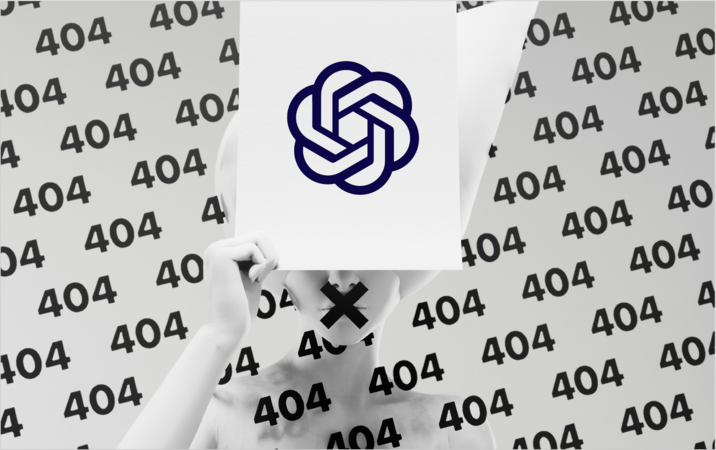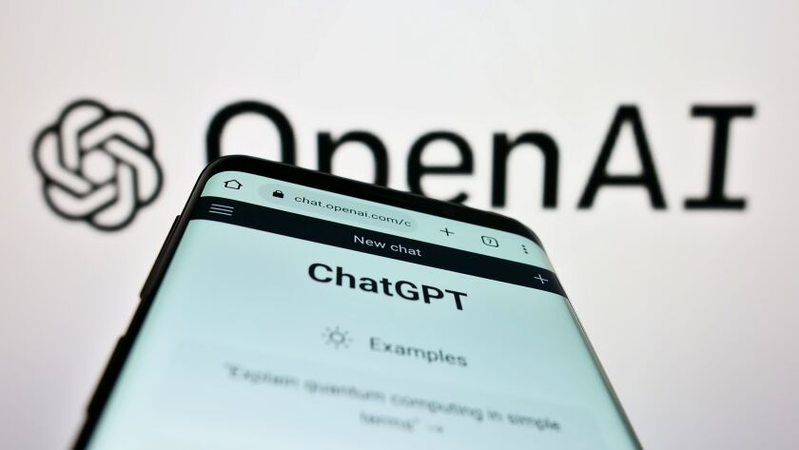The Rise of ChatGPT: Exploring AI Conversations Without Logging In
In the ever-evolving landscape of technology, the emergence of ChatGPT, an advanced language model developed by OpenAI, has sparked a global fascination with the potential of artificial intelligence (AI) to revolutionize the way we communicate and interact. As the demand for seamless, accessible, and intuitive AI-powered conversational experiences grows, the question of whether one can engage with ChatGPT without logging in has become a topic of increasing interest.
Exploring the Capabilities of ChatGPT without Logging In

ChatGPT is a large language model, trained on a vast amount of textual data, that can engage in human-like conversations, answer questions, and assist with a wide range of tasks. The model's ability to understand and generate natural language has made it a highly versatile tool, with applications ranging from content creation and task automation to language translation and code generation.
One of the key features of ChatGPT is its conversational interface, which allows users to interact with the AI system in a natural, back-and-forth dialogue. This intuitive approach to interaction has made ChatGPT particularly appealing to a wide audience, as it removes the need for complex programming or technical knowledge.
Accessing ChatGPT without Logging In
While ChatGPT is primarily accessed through the official OpenAI platform, which requires user registration and login, there are alternative ways to engage with the AI system without the need for a direct account. These include:
Third-Party Websites and Chatbots: Various websites and chatbot platforms have integrated ChatGPT into their services, allowing users to interact with the AI without the need for a direct OpenAI account.
Browser Extensions and Plugins: Developers have created browser extensions and plugins that enable ChatGPT functionality within the user's web browser, providing a seamless way to access the AI without a dedicated login.
API Integrations: Developers and organizations can integrate the ChatGPT API into their own applications, enabling users to interact with the AI system through custom-built interfaces or embedded within other software.
Command-Line Interfaces: For users who prefer a more technical approach, there are command-line tools and interfaces that allow direct interaction with ChatGPT without the need for a web-based interface.
These alternative methods of accessing ChatGPT without logging in have opened up new opportunities for users to explore the AI's capabilities, as well as providing a more accessible and inclusive approach to AI-powered conversations.
Limitations and Considerations
While the ability to engage with ChatGPT without logging in offers numerous advantages, it also comes with certain limitations and considerations that users should be aware of:
Privacy and Data Protection: When using third-party platforms or integrations, users must be mindful of the privacy and data protection policies, as the handling of sensitive information may differ from the official OpenAI platform.
Feature Limitations: Accessing ChatGPT through alternative methods may result in some feature limitations or reduced functionality compared to the full-featured experience available through the official OpenAI platform.
Potential for Abuse: The ease of access to ChatGPT without logging in may also lead to potential misuse or abuse, such as the generation of harmful or misleading content. Users should be mindful of these risks and exercise caution when engaging with the AI system.
Reliability and Consistency: The performance and reliability of ChatGPT accessed through third-party platforms or integrations may vary, as they may be subject to different infrastructure, resources, and maintenance practices.
Legal and Ethical Considerations: Users should be aware of the legal and ethical implications of using ChatGPT, particularly when it comes to intellectual property, content generation, and compliance with relevant regulations.
Navigating the Landscape of ChatGPT without Logging In

Evaluating Third-Party Platforms and Integrations
When exploring the world of ChatGPT without logging in, it is essential to carefully evaluate the various third-party platforms and integrations available. Some key factors to consider include:
Reputation and Credibility: Research the provider's background, reviews, and track record to ensure they are reputable and trustworthy.
Privacy and Security Practices: Examine the platform's data protection policies, encryption methods, and user privacy safeguards.
Feature Availability: Assess the range of features and functionalities offered, and how they compare to the official ChatGPT experience.
Reliability and Performance: Investigate user feedback and reviews to gauge the platform's stability, responsiveness, and overall user experience.
Compliance and Legal Considerations: Ensure the platform aligns with relevant regulations and guidelines, particularly regarding the use of AI-generated content.
By thoroughly evaluating these aspects, users can make informed decisions and select the most suitable option for their needs.
Leveraging Command-Line Interfaces and API Integrations
For users who prefer a more technical approach or require greater control over their ChatGPT experience, command-line interfaces and API integrations offer a valuable alternative to web-based platforms.
Command-Line Interfaces:
Command-line tools, such as chatgpt-cli or gpt-3-powershell, provide a text-based interface for interacting with ChatGPT.
These interfaces offer increased flexibility, allowing users to customize the interaction, automate tasks, and integrate ChatGPT into their existing workflows.
Users can leverage these tools to access ChatGPT without the need for a web browser or graphical user interface.
API Integrations:
Developers and organizations can leverage the ChatGPT API to integrate the AI system into their own applications and services.
This approach allows for a high degree of customization, as users can design their own interfaces and workflows around the ChatGPT API.
API integrations can be particularly useful for businesses, developers, or power users who require a more tailored and seamless AI-powered experience.
Both command-line interfaces and API integrations offer a more technical and customizable approach to accessing ChatGPT without logging in. These methods may appeal to users who prioritize flexibility, control, and seamless integration within their existing systems and workflows.
Exploring the Limitations and Risks of ChatGPT without Logging In
While the ability to engage with ChatGPT without logging in presents numerous advantages, it is essential to be aware of the potential limitations and risks associated with this approach:
Privacy and Data Protection Concerns:
When using third-party platforms or integrations, users must carefully review the privacy and data protection policies to ensure their personal information and interactions are being handled securely.
The level of data protection may vary across different providers, and users should be mindful of how their data is being collected, stored, and used.
Feature Limitations:
Accessing ChatGPT through alternative methods may result in reduced functionality or the absence of certain features compared to the official OpenAI platform.
Users should research the specific capabilities and limitations of the platform or integration they are using to ensure it meets their needs.
Potential for Abuse and Misuse:
The ease of access to ChatGPT without logging in may increase the risk of the AI system being used for malicious purposes, such as the generation of harmful or misleading content.
Users should be cautious and vigilant when engaging with ChatGPT, particularly when using third-party platforms or integrations, to mitigate the potential for abuse.
Reliability and Consistency Concerns:
The performance and reliability of ChatGPT accessed through alternative methods may vary, as they may be subject to different infrastructure, resources, and maintenance practices.
Users may encounter inconsistencies or fluctuations in the AI's responses, which could impact the overall user experience and the trust in the system.
Legal and Ethical Implications:
The use of ChatGPT, regardless of the access method, carries legal and ethical considerations, such as intellectual property rights, content generation, and compliance with relevant regulations.
Users should be aware of these implications and ensure they are using the AI system responsibly and in accordance with applicable laws and guidelines.
By being mindful of these limitations and risks, users can navigate the world of ChatGPT without logging in more effectively, making informed decisions and taking appropriate measures to protect their privacy, security, and the integrity of the AI-powered conversations.
Exploring the Potential Use Cases of ChatGPT without Logging In

Content Creation and Ideation
One of the most prominent use cases of ChatGPT, even without logging in, is its ability to assist with content creation and ideation. The AI system can be leveraged to:
Generate Original Text: ChatGPT can produce high-quality, coherent text on a wide range of topics, from articles and blog posts to creative writing and scripts.
Facilitate Brainstorming and Ideation: The AI can help users generate new ideas, expand on existing concepts, and explore different perspectives, making it a valuable tool for creative and strategic thinking.
Enhance Writing and Editing: ChatGPT can provide constructive feedback, suggest revisions, and help improve the clarity, flow, and overall quality of written content.
Translate and Localize Content: The AI's language understanding capabilities can be leveraged to translate content into multiple languages and adapt it to different cultural contexts.
Task Automation and Productivity Enhancement
ChatGPT's versatility extends beyond content creation, as it can also be utilized to automate various tasks and enhance productivity:
Code Generation and Programming Assistance: The AI can generate code snippets, debug problems, and provide explanations, making it a valuable tool for developers and programmers.
Research and Information Gathering: ChatGPT can quickly synthesize information from multiple sources, providing summaries, insights, and recommendations to support research and decision-making.
Email and Communication Assistance: The AI can help draft professional emails, craft responses, and provide language suggestions to improve the clarity and tone of written communication.
Project Planning and Task Management: ChatGPT can assist with breaking down complex projects, creating task lists, and providing guidance on project management and organization.
Educational and Learning Applications
The conversational nature of ChatGPT makes it a compelling tool for educational and learning applications, even without a direct login:
Tutoring and Personalized Learning: ChatGPT can provide personalized explanations, clarify concepts, and offer guidance to students, enhancing their understanding of various subjects.
Research and Academic Writing Support: The AI can help students with literature reviews, citation formatting, and the structuring and editing of academic papers and essays.
Language Learning and Practice: ChatGPT can engage users in conversational practice, provide feedback on language proficiency, and suggest resources for language learning and improvement.
Lesson Planning and Curriculum Development: Educators can leverage ChatGPT to generate lesson plans, activities, and educational content, streamlining their teaching preparation.
Decision Support and Problem-Solving
ChatGPT's analytical capabilities make it a valuable tool for decision support and problem-solving, even without direct login:
Analytical and Strategic Thinking: The AI can help users explore different scenarios, weigh options, and provide recommendations to support informed decision-making.
Troubleshooting and Problem-Solving: ChatGPT can assist users in breaking down complex problems, identifying root causes, and suggesting potential solutions.
Financial and Business Analysis: The AI can help with financial modeling, market research, and business strategy development, providing data-driven insights and recommendations.
Personal and Professional Development: ChatGPT can offer guidance on goal setting, career planning, and personal growth, drawing from its broad knowledge base.
Creative and Entertainment Applications
Beyond practical applications, ChatGPT can also be utilized for creative and entertainment purposes, even without a direct login:
Creative Writing and Storytelling: The AI can help users generate original stories, poems, and scripts, as well as provide feedback and suggestions to enhance creative writing.
Humor and Joke Generation: ChatGPT can be used to generate humorous content, such as puns, jokes, and witty exchanges, adding an element of entertainment to conversations.
Music and Art Inspiration: The AI can provide creative prompts, ideas, and inspiration to artists, musicians, and designers, helping to stimulate the creative process.
Game Development and Narrative Design: ChatGPT can assist in the creation of interactive narratives, dialogue, and world-building for video games and other interactive experiences.
Responsible Use and Ethical Considerations of ChatGPT without Logging In
As the use of ChatGPT continues to grow, it is crucial to address the ethical and responsible use of the AI system, particularly in the context of accessing it without logging in.
Transparency and Disclosure
When engaging with ChatGPT through third-party platforms or integrations, users should be transparent about the use of the AI system and disclose its involvement in their work or interactions. This promotes trust, accountability, and the responsible use of the technology.
Intellectual Property and Content Ownership
Users must be mindful of intellectual property rights and ensure that any content generated or modified using ChatGPT respects the ownership and licensing of the original material. Appropriate attribution and permissions should be obtained when necessary.
Mitigating Potential Harm and Misuse
To address the risks of abuse and misuse, users should be vigilant in monitoring the outputs of ChatGPT, particularly when accessed through alternative methods. Measures should be in place to detect and mitigate the generation of harmful, misleading, or illegal content.
Accessibility and Inclusivity
Efforts should be made to ensure that the use of ChatGPT without logging in is accessible and inclusive to users from diverse backgrounds, abilities, and technological proficiencies. This may involve providing clear instructions, offering alternative access methods, and addressing any potential barriers to use.
Compliance with Regulations and Guidelines
Users should familiarize themselves with the relevant regulations, guidelines, and best practices governing the use of AI systems, such as data privacy laws, content moderation policies, and ethical AI principles. Adhering to these standards is crucial when engaging with ChatGPT, regardless of the access method.
Continuous Learning and Improvement
As the field of AI and language models evolves, it is essential for users to stay informed about the latest developments, limitations, and best practices related to ChatGPT. Engaging in ongoing education, research, and collaboration can help ensure the responsible and effective use of the technology.
Conclusion
The rise of ChatGPT has ushered in a new era of AI-powered conversations, and the ability to access this transformative technology without logging in has opened up new possibilities for users across a wide range of applications. From content creation and task automation to educational support and creative expression, the potential of ChatGPT is undeniable.
However, as with any emerging technology, it is crucial to navigate the landscape of ChatGPT without logging in with a keen eye on the associated limitations, risks, and ethical considerations. By evaluating third-party platforms, leveraging command-line interfaces and API integrations, and practicing responsible use, users can unlock the full potential of ChatGPT while upholding the principles of transparency, privacy, and accountability.
As the adoption of ChatGPT continues to grow, it is incumbent upon users, developers, and policymakers to work collaboratively to ensure the responsible and ethical deployment of this transformative technology. By doing so, we can harness the power of AI-powered conversations to drive innovation, enhance productivity, and ultimately, improve thehuman experience.
You Might Also Like
- iOS 18 New AI Features: What to Expect at WWDC 2026
- ChatGPT Error: What is 502 Bad Gateway and How to Fix It?
- How to Fix ChatGPT's Internal Server Error: A Comprehensive Guide
- 100+ Heartfelt Thank You Messages for Your Husband
- 210+ Heartfelt Love Messages to Capture Your Crush's Heart
- 225+ Joyful Messages to Congratulate Someone on Their New Car
- 210+ Heartfelt Miss You Papa After Death Messages
- 130+ Sympathetic Condolence Messages for the Loss of a Mother

